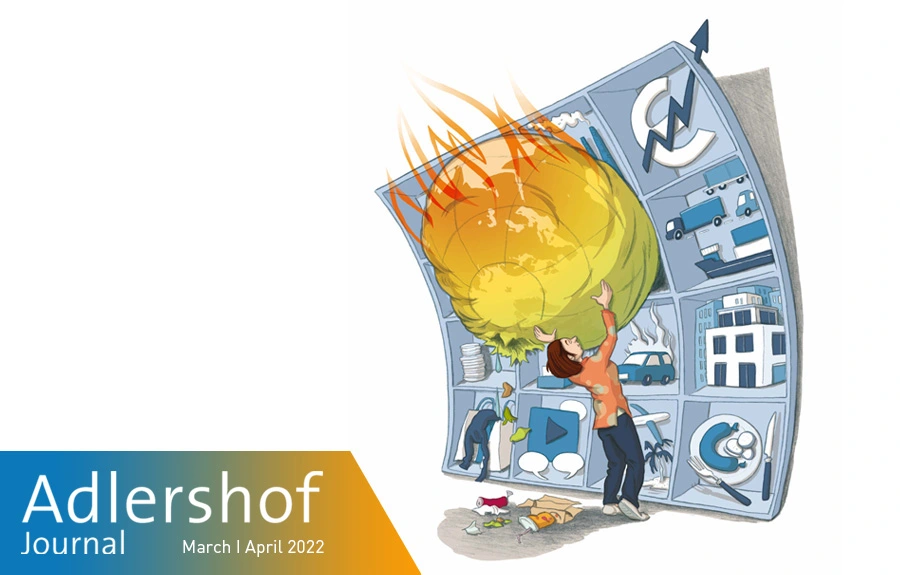New normality, new mindset
Essay by Christoph Burger, psychologist, career advisor and coach for personal development in and around Stuttgart
Since the beginning of the coronavirus crisis in 2020, we have been longing for a return to normality—the everyday life we are used to, partying together, going on holiday without a worry in the world. But how much of that will be possible? How much satisfaction is waiting for us after the pandemic in the years to come?
What, indeed, is “normal”? Daniel Kahneman, a psychologist and winner of the Nobel Prize for economics, illustrates it in following way: A car was on fire along the way that he and his wife used to cross the city every week. An unexpected event. What was even more surprising was that, a week later, it repeated itself. On the exact same street corner. Even months after this event, they continued to be amazed that NO burning car was to be found at that particular spot in the city.
Two random but similar events happen—and already our brain turns them into a rule. Normality, then, is what we are used to. The advantage: We can quickly adapt to changing circumstances.
Whether we want this is an entirely different question. The more privileged the position we live in is, the more vehemently we defend the status quo. And the greater our power is to enforce it. Currently, we decided to get used to very different things: To our economic system and our lifestyle, to increasingly loud warnings from scientists that both must change—and even to record heat and flood disasters.
For this reason, it was hardly noticed that the US and Canada had used up their CO2 budget per capita to keep within the 1.5-degree limit of global warming (at 66 percent probability). This will also be the case in Germany by the end of this legislative period. We have cultivated a type of magical thinking not to draw any conclusions for ourselves: It will—miraculously—all go well in the end.
We use this type of brain magic to maintain a blissful state in our heads. Physics, however, are governed by cause and effect. Emissions of climate gases lead to a global rise in temperatures. Exceeding a maximum of 1.5 °C might unleash a cascade of spill-over effects—and a global loss of control over our living conditions. The longer we stave off this realisation, the more severe the impact will be.
Indeed, developing our mindset offers some attractive prospects. Empirical psychology on ego development found out the following: While many adults are content with inserting new information into their existing mental grid (using a bigger hammer when things don’t fit), other stay curious as well as courageous. They continuously question and develop their worldview and their view of themselves. This takes some strength because it requires questioning old certainties and recognising and admitting mistakes.
However, while spiralling between the poles of “I” and “we”, people acquire increasing mental flexibility and capacity. And a mindset that is likely more sustainable and more complex thinking that is better adjusted to the dynamism of our time and age and an increasingly complex world. Since the world within is also becoming more diverse, happiness and satisfaction can be uncoupled from the consumption of material things.
More inner development to keep within our external boundaries does not have to be a bad thing. Quite the contrary. Not only do we save the world we live in, but we also embark on an exciting new journey capable of fulfilling us as humans. We will soon have to refrain from air travel. But not from this journey.
Christoph Burger is a psychologist who works as a career advisor and coach for personal development in and around Stuttgart. He is an active member of Psychologists4Future and author of various business books, including “Traumjob für Dummies” (“Dream job for dummies”).
